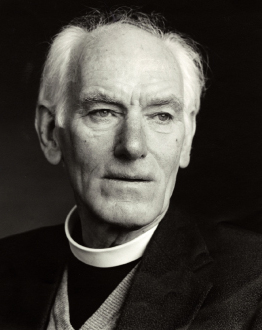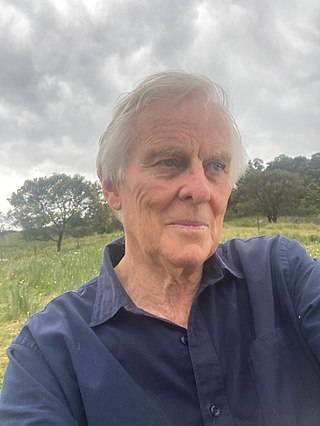
George Bentham was an English botanist, described by the weed botanist Duane Isely as "the premier systematic botanist of the nineteenth century". Born into a distinguished family, he initially studied law, but had a fascination with botany from an early age, which he soon pursued, becoming president of the Linnaean Society in 1861, and a fellow of the Royal Society in 1862. He was the author of a number of important botanical works, particularly flora. He is best known for his taxonomic classification of plants in collaboration with Joseph Dalton Hooker, his Genera Plantarum (1862–1883). He died in London in 1884.

Sir Simon Michael Schama is a British historian and television presenter. He specialises in art history, Dutch history, Jewish history, and French history. He is a Professor of History and Art History at Columbia University.
Albert Marius Soboul was a historian of the French Revolutionary and Napoleonic periods. A professor at the Sorbonne, he was chair of the History of the French Revolution and author of numerous influential works of history and historical interpretation. In his lifetime, he was internationally recognized as the foremost French authority on the Revolutionary era.
Geoffrey Norman Blainey, is an Australian historian, academic, best selling author and commentator.
Sir Peter James Donnelly is an Australian-British mathematician and Professor of Statistical Science at the University of Oxford, and the CEO of Genomics PLC. He is a specialist in applied probability and has made contributions to coalescent theory. His research group at Oxford has an international reputation for the development of statistical methodology to analyze genetic data.
George Seddon was an Australian academic who held university chairs in a range of subjects. He wrote popular books on the Australian landscape embracing diverse points of view. He was well known for his book Sense of Place (1972) which brought the needs of the fragile Swan Coastal Plain to the attention of the public.

John McManners was a British clergyman and historian of religion who specialized in the history of the church and other aspects of religious life in 18th-century France. He was Regius Professor of Ecclesiastical History at the University of Oxford from 1972 to 1984. He also served as Fellow and Chaplain of All Souls College, Oxford, from 1964 to 2001.
Stuart Forbes Macintyre was an Australian historian, and Dean of the Faculty of Arts at the University of Melbourne from 1999 to 2008. He was voted one of Australia's most influential historians.

Marcia Lynne Langton is an Aboriginal Australian writer and academic. As of 2022 she is the Redmond Barry Distinguished Professor at the Melbourne School of Population and Global Health, University of Melbourne. Langton is known for her activism in the Indigenous rights arena.
William D. Rubinstein was an American-British historian and author. His best-known work, Men of Property: The Very Wealthy in Britain Since the Industrial Revolution, charts the rise of the 'super rich', a class he saw as expanding exponentially.

Arthur Dale Trendall, was a New Zealand art historian and classical archaeologist whose work on identifying the work of individual artists on Greek ceramic vessels at Apulia and other sites earned him international prizes and a papal knighthood.
Robert John O'Neill, was an Australian historian and academic. He served as the chair of the International Academic Advisory Committee at the United States Studies Centre at the University of Sydney, was director of the International Institute for Strategic Studies, based in London, from 1982 to 1987, and was Chichele Professor of the History of War at the University of Oxford from 1987 to 2000.
Verity Nancy Burgmann is Adjunct Professor of Politics in the School of Social Sciences at Monash University and Honorary Professorial Fellow in the eScholarship Research Centre at the University of Melbourne, where she is Director of the Reason in Revolt website. In 2013 she was Ludwig Hirschfeld Mack Visiting Professor of Australian Studies in the Institut für Englische Philologie at the Freie Universität Berlin.

Anthony Crothers Milner is an Australian historian of Southeast Asia, focused primarily on the history of ideas, and a commentator on Australia-Asia relationships.

Maximilien François Marie Isidore de Robespierre was a French lawyer and statesman, widely recognised as one of the most influential and controversial figures of the French Revolution. Robespierre fervently campaigned for the voting rights of all men and their unimpeded admission to the National Guard. Additionally, he advocated the right to petition, the right to bear arms in self-defence, and the abolition of the Atlantic slave trade. He was a radical Jacobin leader who came to prominence as a member of the Committee of Public Safety, an administrative body of the First French Republic. His legacy has been heavily influenced by his actual or perceived participation in repression of the Revolution's opponents, but is notable for his progressive views for the time.
Hilary Jane McPhee is an Australian writer and editor. She was awarded an Order of Australia for service to the Arts in 2003.

Colin Patrick Mackerras is an Australian sinologist, Emeritus Professor at Griffith University, and specialist in Chinese culture. He has published on Chinese drama, national minorities of China, Australian-Chinese relations and images of China in the West.
Belinda Probert is an educator and social scientist who has advised non-government organisations and state and national governments in Australia. Her academic research and writing has been in the areas of employment policy, gender equity, and work and welfare reform, including households and the domestic division of labour. She has held senior leadership roles in several universities as well as with the Australian Research Council, where she was a member and Deputy Chair of the Research Training and Careers Committee (1993–1998), and member of the Social, Behavioural and Economic Sciences Expert Advisory Committee.
Ann Margaret McGrath is an Australian historian and academic. As of 2023 she is the WK Hancock Chair of History at the Australian National University.
Alison Mary Houston Patrick was an Australian historian and scholar of the French Revolution. In 1977 she was the first woman elected head of the Department of History at the University of Melbourne.








